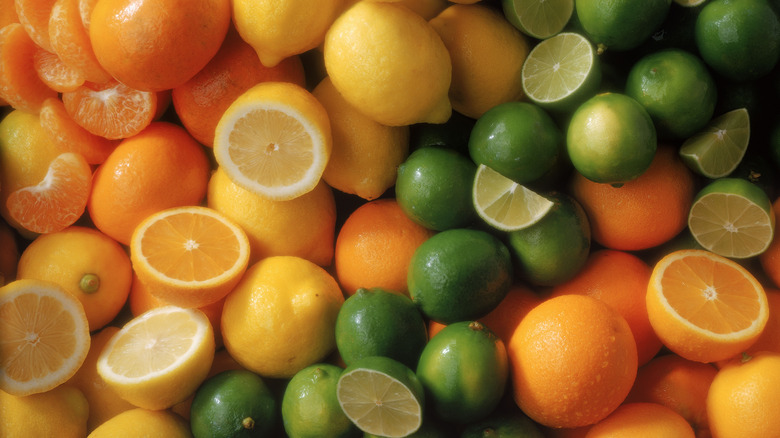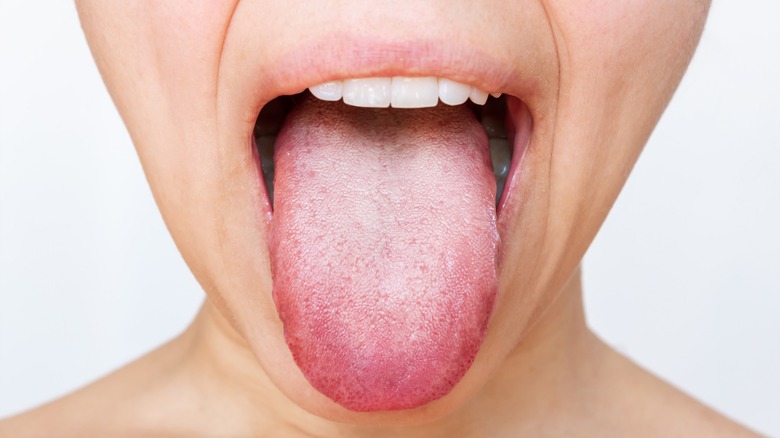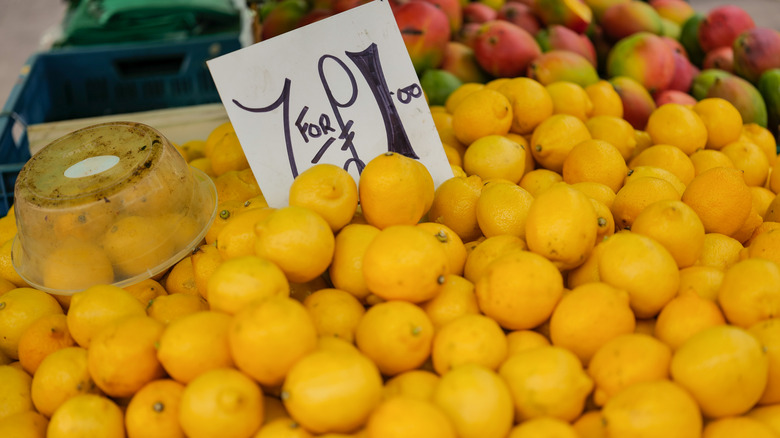The Science Behind Why We Pucker Our Faces After Eating Something Sour
The world is full of engineering marvels. A select few of them have been around for a very, very long time indeed. Take the much-ballyhooed Great Pyramid of Giza, for instance. Per Britannica, this stunning Wonder of the World has stood since around 2560 B.C., and the question of how it was constructed at all continues to fascinate us.
Over the centuries, the likes of the Empire State Building, Notre Dame cathedral, and Petra in Jordan have made one thing very clear: we humans, for all our faults, are very adept indeed at building things. All too often, though, we're looking outwards, which distracts us from an even more fundamental fact: our bodies themselves are incredible pieces of engineering.
As with the building of the Pyramids of Giza, there are so many things that scientists still don't quite understand about how the human body works. For instance, Healthline suggests that yawning helps control the temperature of our busy brains. Sleeping, meanwhile, is another enigma of human biology that we're yet to fully decode. There are so many more minor ones too: our physical reaction to sour tastes, for instance.
Our terrific taste buds
Of course, taste and dietary preferences are such a personal thing. Some of us may enjoy the hottest of hot sauces, and in enormous quantities. Others would blanche at the very idea of that, and prefer to stay on the mild side of the taste spectrum. It's all about personal preference, which is exactly why Nando's boasts that PERi-ometer of theirs.
Regardless of taste preferences, though, the human tongue is, by and large, rather uniform. As BBC reports, we use around 8,000 taste buds to determine the flavors of our food and drink, and tastes are divided into the five familiar types: sour, salty, sweet, bitter, and umami (a kind of savory taste, per Real Simple).
Again, we all have our preferences for some specific tastes over others. Some of us simply never have the space for a dessert after a large meal, or it doesn't appeal enough to dig deep and find it, while others with a so-called sweet tooth would never consider a meal complete without one. Many of us will be familiar, though, with the hilarious-looking face-pucker that can result from tasting something particularly sour (whether it was enjoyed by the eater or not). Why do we do this? Curiously, it seems that it is a reaction to the acidic content of sour tastes, and to the vitamins in our diets.
The importance of vitamin C
Of the many vitamins and minerals that should be implemented in our diets, vitamin C, or ascorbic acid, is among the most notable. The Mayo Clinic reports that, among other things, it is a vital defense against the damage of free radicals, can ward off conditions like scurvy, and supports our bodies in performing their most remarkable feat of all: repairing themselves. It's commonly found in staples like potatoes and certain fruits, the outlet goes on, and we tend to get enough of this antioxidant from our diets. Which is a relief, as our bodies don't produce it on their own.
In the abstract of the December 2010 study "Inactivation dates of the human and guinea pig vitamin C genes," authors Marc Y. Lachapelle and Guy Drouin state that humans, guinea pigs, and other creatures like bats can't produce vitamin C naturally. "This inability results from mutations in the GLO gene coding for L-gulono-γ-lactone oxidase, the enzyme responsible for catalyzing the last step in the vitamin C biosynthetic pathway," the authors write.
Instead, we get our vitamin C through dietary supplements and various foods. Rutgers University professor Paul Breslin explains, per Live Science, that we have been eating lots of fruit for much of our evolutionary journey, and so we'd naturally encounter some very sour specimens on occasion: "That wrinkling up of the face is some kind of a rejection response ... or a signaling response to ourselves and others."
A message of sorts
In a December 1994 issue of "Physiology & Behavior," John I. Glendinning discussed the topic: "Is the bitter rejection response always adaptive?" Glendinning states, "The bitter rejection response consists of a suite of withdrawal reflexes and negative affective responses." By way of explanation, the author goes on to explain, "It is generally assumed to have evolved as a way to facilitate avoidance of foods that are poisonous because they usually taste bitter to humans."
Glendinning also notes, however, that such reactions can be elicited by dangerous foods as well as safe ones. Could it be, then, that unusual, unfamiliar, or unexpected bitter tastes, as well as sour ones, could be having this effect?
The taste of a strong citrus fruit, such as a lime, can be surprising. Strong acidic, sour tastes can be very extreme. As Mental Floss adds, certain otherwise-mild foods or drinks can become sour when they spoil. It's unclear, then, what we are signaling to each other with these responses: that a citrus fruit is safe to eat despite its sour taste, or that spoiled milk is not safe because of its sour taste? Perhaps both. Tolerances and extreme responses to sour tastes will vary, but as always, it seems to boil down to the fact that we're social creatures who want to keep each other informed.



